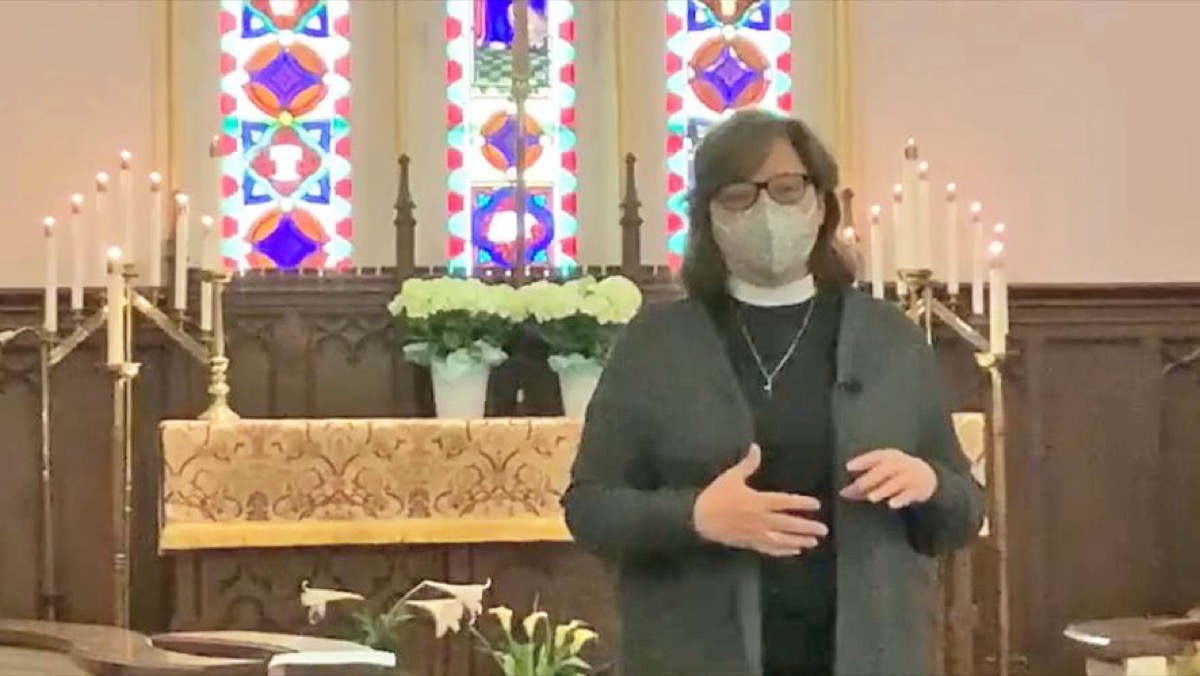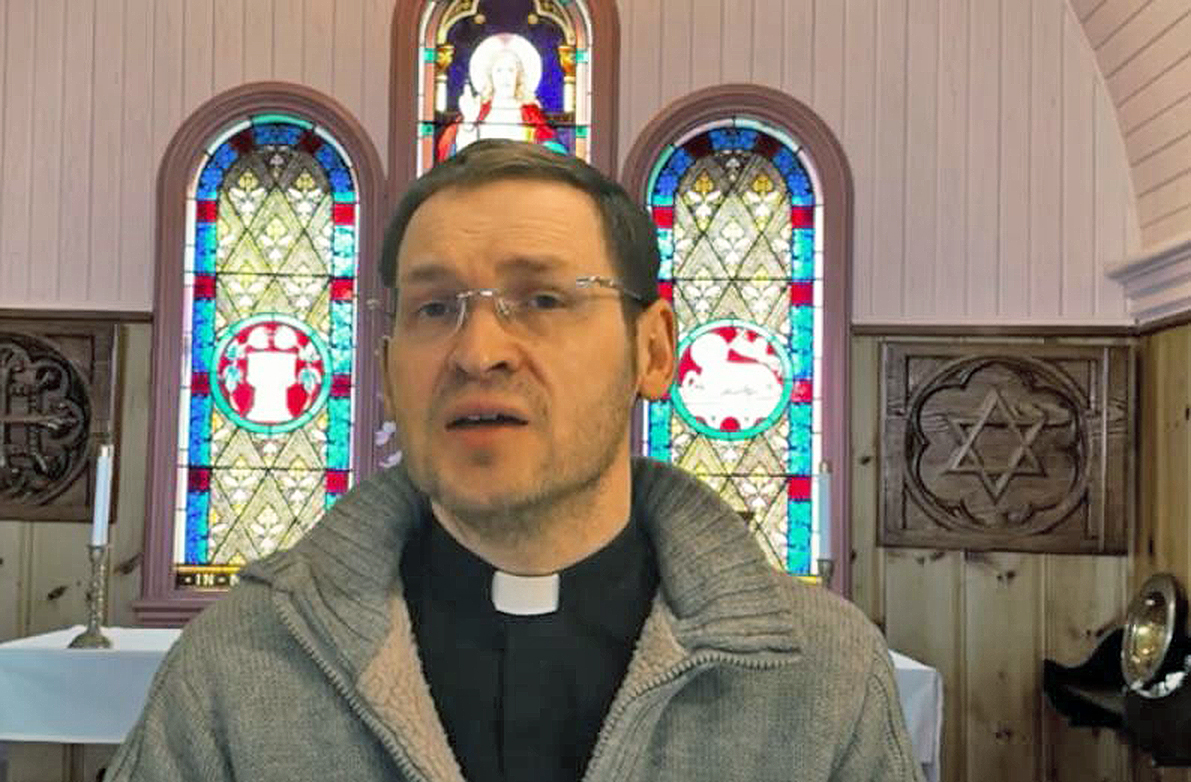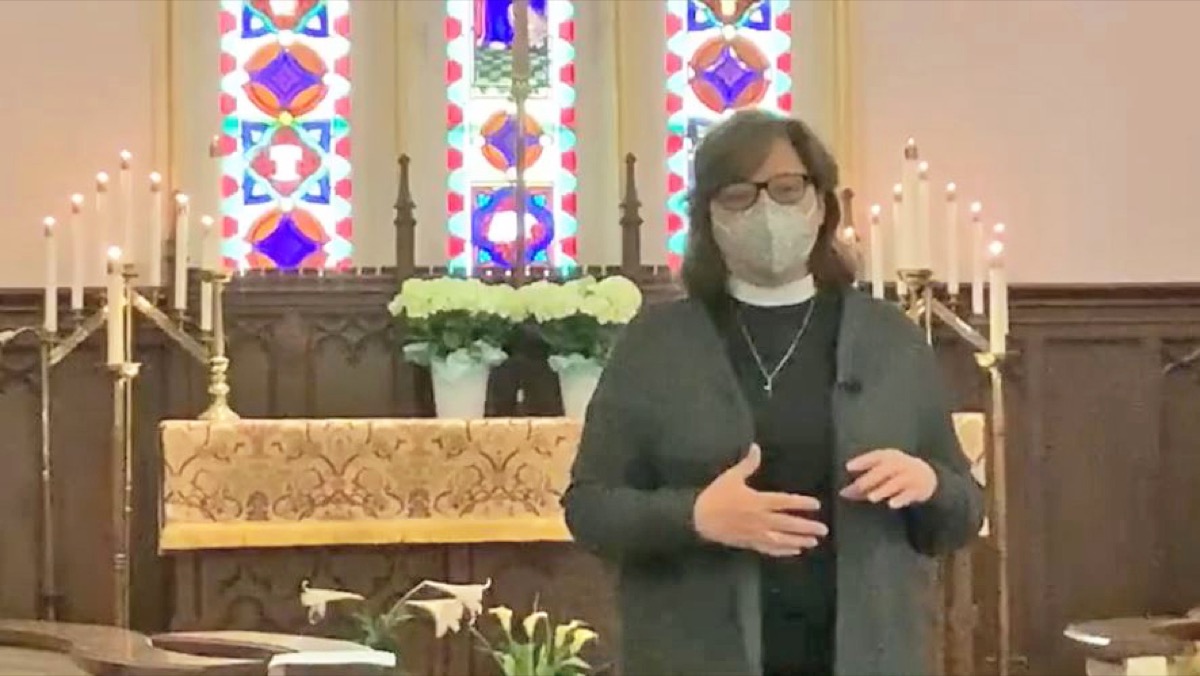It has been, as Canon Katherine Morgan wrote in response to her parish, St. John’s, Thorold, receiving a Parish Technology Support Grant, “a year of incredible challenges and constant adaptation to engage and connect to our parish family and the community around us.”

In expressing gratitude to the diocese for the support to adapt with the pandemic, she observed that how we use technology is very different now than it was well over a year ago. “There has been a lot of learning and a lot of change in how we reach out.”
It is the dedication to retooling and the learning of how to maneuver through what was never taught in seminary that has been amazing to behold. It is seeing new volunteers engaged in church ministry by sharing a technology-based skillset rarely sought before that is inspiring. It is the weekly numbers of people tuning into online church services, showing that the faithful are still gathering and this pivoting while hard has demonstrated resourcefulness and versatility.
Many parishes have been broadcasting their worship services live, some even reaping new attendees. Other parishes have been offering online Facebook live prayer services or pre-recorded YouTube prayer gatherings. Many parishes have created or continued in-person Bible studies, book clubs, and social gatherings through videoconferencing. All parishes have held meetings related to church business, including vestry meetings, through one online meeting platform or another. Other church-related activities have taken place with the support of technology too, such as fundraising events like a ticketed wine and cheese or a silent auction.
Technology has now become a tool much used by our parishes. While research showed churches needed to embrace the capabilities offered by technology such as online donations, some churches were slow to embrace these tools. As with many things though, the pandemic forced our hand and made us engage even more with the tools of technology.
For some, having the option to engage in worship from home has become a blessing as they were already homebound or unable to attend a Sunday morning service or an evening Bible study, due to work or family needs.
Recognizing the importance and value of improving technology for parish life, Synod Council approved a one-time Parish Technology Support Grant. As applications rolled in, it became apparent that the allotted $30,000 would not be sufficient. Synod Council then approved an additional $30,000. Each dollar has since been earmarked to 34 parishes totaling all but $22 of the $60,000 total.
While some parishes had parishioners who generously lent video cameras, microphones, and other equipment, as the pandemic continued this was not sustainable. Other parishes had to start from scratch, perhaps installing wi-fi or upgrading from a desktop computer to a laptop.
The Parish Technology Support Grant applications spoke of parishes connecting with one another to learn what systems were best for creating live or pre-recorded services. For instance, the application from All Saints, Dain City references reaching out to the rector of St. David’s, Welland who recommended a technology consultant that they had successfully used.
The ability to attend worship services remotely and meet online afterward or throughout the week has been life-giving to many during this unsettling time. It has also provided learning opportunities not only for clergy but also parishioners.

Barbra Mansfield, a warden at St. John’s, Stewarttown, shared how the funds from the technology grant enabled her parish to purchase the needed equipment to produce online services. She shared how her church’s Easter services were shared online and were viewed by many. “We are a small church, but each person has their own strengths. We had fun producing the services and because everyone was involved in planning the services, they were extra special.”
Online platforms have, for the most part, been a gift during this terrible pandemic. Technology has allowed us to continue to be a community of faith. Many parishes plan to continue offering classes, meetings, and other gatherings virtually even when we can get back into the church building. Certainly, what we have seen during this pandemic is the resiliency of our parish leadership and parishioners and that we can adapt to change.

Our Treasures and Us: A Time for Reflection